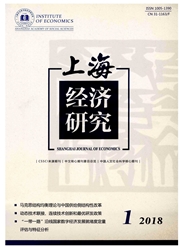

 中文摘要:
中文摘要:
该文通过构建理论模型,以包含市民化制约因素的脱贫条件不等式将农民脱贫与农民工市民化这两个问题纳入到统一的分析框架中,并通过应用多维贫困测度方法对2013年中国农村流动人口数据进行测算,得出造成农民工贫困的关键因素不是收入低,而是农民工的非市民化身份带来的各类制约影响了农民工脱贫甚至导致其返贫。因此,推动农民脱贫的关键是推动农民工的市民化。
 英文摘要:
英文摘要:
This paper constructs a theoretical model to integrate poverty alleviation and migrant worker citizenization into a unified analytical framework by using the condition inequality of escaping poverty which includes citizenization constraints.Applying multidimensional poverty measures and the Chinese rural mobile population data,the main cause of poverty is found to be migrant workers' non-citizenship,rather than income,with various unfavorable factors which restrict rural migrant workers out of poverty or even lead back into poverty.Therefore,the key to promoting poverty alleviation of rural residents lies in the citizenization of migrant workers.
 同期刊论文项目
同期刊论文项目
 同项目期刊论文
同项目期刊论文
 期刊信息
期刊信息
